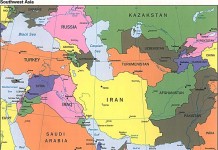While US-Pakistan Relations remain tense, there are signs indicating Pakistan-India relations are improving. Pakistan and India announced the resumption of dialogue on February 10th, a process that remained suspended since the Mumbai attack in November 2008. The motivation behind the commencement of talks appears more related to the conflict in Afghanistan and the issue of cross-border terrorism, than dealing with Kashmir dispute. As a result of these developments, terrorist attacks in Pakistan could increase once again.
Analysis
The announcement for the resumption of dialog between the two countries, came after the Foreign Secretary of Pakistan Salman Bashir and his Indian counterpart Nirunpama Rao met in Bhuttan last month. According to the announcement from Islamabad, the first round of talks will take place at the secretary-level in New Delhi on March 27 and 28, and the agenda includes anti-terrorism and checking drug trade.
According to public perceptions in Pakistan, these talks would only be focused on India’s main concern: cross-border terrorism, and not Kashmir. To counter these apprehensions, Prime Minister Manmohan Singh announced today while visiting Jammu that the upcoming meetings would include Kashmir.
The Pakistan-India dimension of the Afghan quandary has improved at a time when US-Pakistan relations have snow dived over the Raymond-Davis incidence. It is also crucial to note the statement from Secretary of State Hillary Clinton last month, regarding the political solution to Afghanistan. Hillary Clinton stated it’s the right time, “to get serious about a responsible reconciliation process, led by Afghans and supported by intense regional diplomacy and strong U.S.-backing.”
Both of these variables, discussion on Kashmir and political solution for Afghan conflict, have remained high on Pakistan’s agenda. As far as Kashmir is concerned, India has long maintained it would only talk about the dispute once Pakistan ceases cross-border support for Kashmir related Jihadi groups. In the case of a political solution for Afghan conflict, US position has been that Taliban and other extremist groups need to be weakened further through military action first. Furthermore, US has maintained that before it can adopt a political approach and negotiate with Taliban, Pakistan needs to drop its support for different factions of Afghan Taliban.
From all indications, below the US-Pakistan tensions, there is movement in both US and Indian positions, as indicated above. Meanwhile, Pakistan also seems to have developed leverage over US in the form of Raymond Davis. However, it’s not clear what compromises Pakistan has made in the changing geopolitical situation of the region.
Based on media analysis, PoliTact has been able to ascertain that Pakistan’s priority at this juncture has also moved from the ideal state of seeking strategic depth and friendly government in Afghanistan, to a stable country on its border. The uncertainty of how that change translates on the ground is enough for extremists to assume the worse, and launch a new wave of terror in Pakistan.
Considering the situation in Middle East, US cannot afford to have Al Qaeda and extremist groups linked to it strengthen in South Asia, and to exploit the volatile situation of Middle East by opening new fronts.



